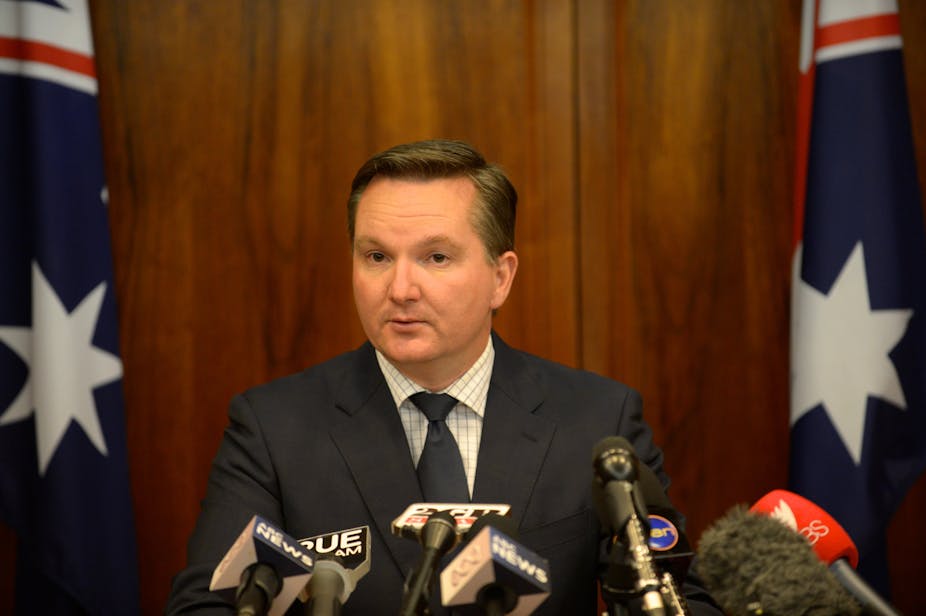It is clear enough that the Gillard government’s revived Pacific Solution has not stopped the boats: it has not even slowed them.
In 2002, the boats stopped, some months after the Pacific Solution was first introduced. The supporters of the policy said that it was the Pacific Solution that stopped the boats: post hoc, ergo propter hoc. In 2012, boat arrival rates increased after the revamped Pacific Solution was introduced. By the same logic we could then argue that the Pacific Solution caused arrival rates to increase.
Bob Carr has since said that the arrival rates would have been higher but for the current approach. It is difficult to argue against that species of logic, beyond saying that it sheds light on the frontier optimism shares with desperation.
Chris Bowen yesterday announced some running repairs on Pacific Solution Mark Two. Because Nauru and Manus Island between them have no chance of taking the people who have arrived here by boat since the new policy was introduced (much less accommodating them for five years - the “no advantage” principle at work), people will be allowed into the Australian community on bridging visas, but they will not be allowed to work and they will have to wait for five years (the “no advantage” principle again).
While this announcement will, for a while, prevent the Pacific Solution from imploding, it just takes us further down the wrong track.
Almost everything that has happened in refugee policy over the past 11 years has been informed and supported by dishonest rhetoric. Specifically, calling boat people “illegals” and “queue-jumpers” is not only false, it is calculated to prejudice the public against a tiny group of weak, vulnerable people who deserve our help, not our hatred.
The poison was started by John Howard, but it is still streaked through the Coalition rhetoric. Earlier this week Tony Abbott shamelessly referred to boat-people as “illegals”, and spoke of them entering Australia “illegally”. Either his policies are founded on a gross misunderstanding of the facts, or he is being dishonest. With him, it’s hard to tell.
To be clear: it is not illegal to come to Australia without papers and seek asylum. Boat-people do not commit any offence by their manner of arrival.
Furthermore, the notion of “queue-jumpers” is equally wrong, and is used with equally malevolent intent. Most of the boat people who have come here over the past 15 years have been Hazaras from Afghanistan. Hazaras are an ethnic minority in Afghanistan. They have been persecuted since the middle of the 19th century. The Taliban are intent on wiping them from the face of the earth. Imagine a Hazara who wants to find safety from the Taliban, but has heard Australia’s criticism of “queue-jumpers”. Suppose he decides to do things the way Tony Abbott would approve: he looks for the Australian Embassy in Kabul in order to seek asylum. Sadly for him, the address of the Embassy is a secret, for security reasons.
Not much of a queue, if you are not allowed to know where it is.
If John Howard had not poisoned the public debate so effectively between 2001 and 2007, perhaps more Australians would be concerned about the present government’s treatment of boat people. Make no mistake, all human rights NGOs, and most Western countries, regard our treatment of boat people as wantonly cruel. We are a rich, secure nation, insulated by sea from most of the world’s refugee flows.
How different our international reputation might be if all Australians understood a few basic facts.
The number of boat people arriving here are tiny, by any measure. This year, total boat people arrivals will amount to less than 8% of our annual migration intake.
Boat people do not represent a failure of border control. Around 4 million people cross our borders with permission each year (mostly for tourism, business or study). If 20,000 boat people get here this year without authority, it will mean that border control is successful 99.5% of the time.
It takes a special form of deceit to reframe this as a “failure of border control”. Let me make my meaning clear: members of the Coalition who criticise boat arrivals as a failure of border control are either dishonest or so utterly uninformed that they should not speak publicly on the subject.
Indefinite mandatory detention costs a spectacular amount of money, and causes untold psychiatric harm to people who are already vulnerable.
In a related piece, I will argue for a completely different approach.

